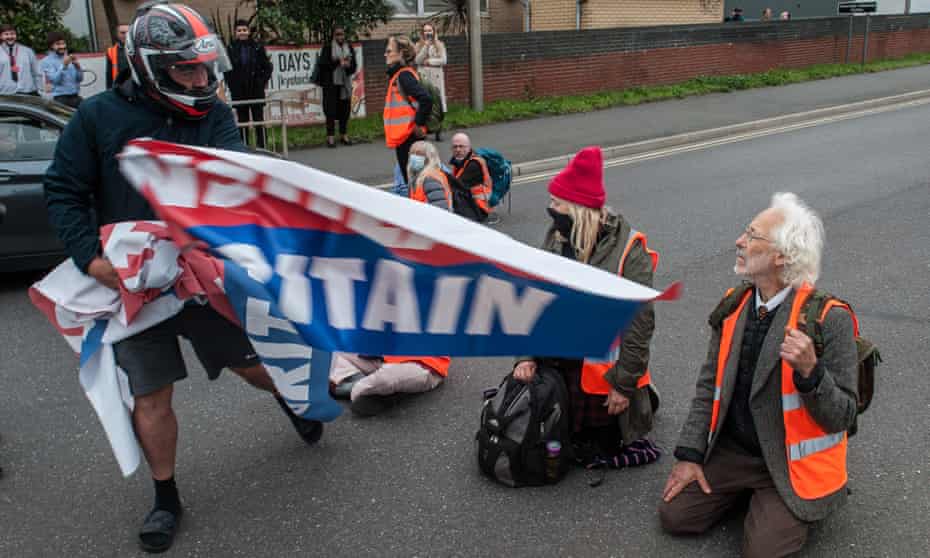Why aren’t we in prison, ask Insulate Britain protesters
Fresh wave of direct action is planned before Cop26 summit opens

Climate protest group Insulate Britain has revealed its “absolute disbelief” that its members have been allowed to repeatedly disrupt the motorway network, saying it had originally expected its campaign of direct action to last just two days.
As the group prepares for a fresh wave of protests this week, organisers admit they are baffled over why the police have effectively allowed them to keep closing major routes.
Activists have so far orchestrated a five-week campaign that has provoked clashes with angry motorists and government threats. Following a 10-day pause, it is about to restart.
During 14 separate days of direct action, hundreds of group members have been arrested yet, despite some being apprehended 10 or 11 times, none has been detained on remand. On Friday, the Metropolitan police said it had arrested 207 activists, with many other arrests occurring outside the force area.
A spokesman for Insulate Britain said that the group had initially expected the campaign to be extremely short-lived because all its members would be in custody.
They also revealed that police had politely emailed to ask for details in advance of where the group planned to protest so they could deploy resources, but said Insulate Britain was under no obligation to offer advance warnings.
“It’s fair to say that there is absolute disbelief and surprise that the campaign has lasted this long. We assumed that we would not be allowed to carry on disrupting the motorway network to the extent that we have been. We thought that people would basically be in prison,” said the spokesman.
Since 13 September, Insulate Britain has staged demonstrations on the M25 and M4, and on major arterial roads in London, as well as around the port of Dover, causing widespread gridlock.
The government has responded by taking out injunctions, banning the group from protesting on specific sections of the strategic road network, which Insulate Britain has defied. Breaching an injunction can lead to charges of contempt of court and a jail sentence.
“The police absolutely have powers to imprison people, the courts have powers to imprison Insulate Britain activists. The powers that the state has to protect the public were not used. If our actions are as dangerous and as disruptive as is being claimed, then I think the question has to be, why were we allowed to continue day after day?” said Insulate Britain.
After the first five Insulate Britain actions, the government also won a court ruling that climate change protesters could be jailed if they continued blocking the M25.
Activists defied the ruling, prompting the home secretary, Priti Patel, to tell the Conservative party conference that new orders would stop the “small minority of offenders” intent on “causing disruption”.
Transport secretary Grant Shapps has also warned that activists face possible imprisonment.
Yet the group says that the reality has been far different from the rhetoric and that it is continuing to attract new members willing to participate in direction action.
“Priti Patel and Grant Shapps and the government are trying to have their cake and eat it at the moment. They’re saying: ‘We will act on this, look how tough we’re being.’ And at the same time, they’re refusing to take action, ” they said.
One theory among organisers is that the government is keen to avoid detaining members who could be presented as “climate prisoners” when the Cop26 climate summit opens in Glasgow next weekend.
Insulate Britain is calling for a national programme to ensure homes are insulated by 2030, which government experts on climate change believe is essential to meet targets on reducing carbon emissions.
The National Police Chiefs’ Council has been approached for comment on the law enforcement strategy towards the group.
In a recent open letter to Boris Johnson, Insulate Britain said it “profoundly” acknowledges the disruption caused.
